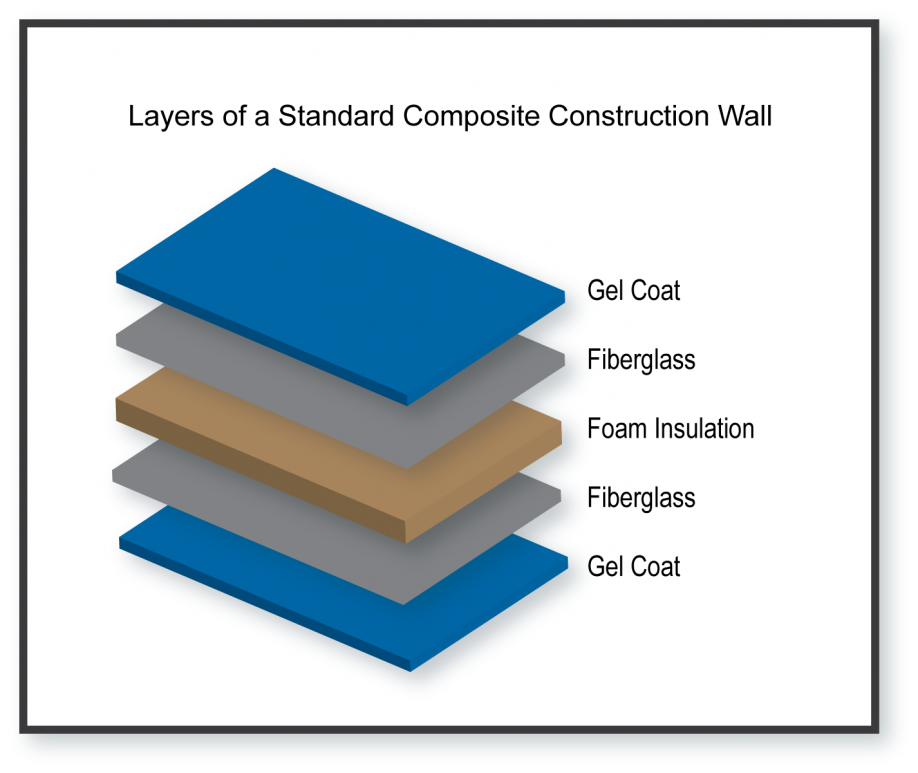Exploring the Advantages of Composites in Construction
Exploring the Advantages of Composites in Construction
Blog Article
Checking Out the Uses and Advantages of Recycled Composites in Modern Industries
The combinations of recycled materials with innovative composite innovations offers an encouraging method for boosting sustainability, durability, and cost-efficiency across various industries. As sectors seek ingenious options to resolve environmental concerns and improve operational performances, the consolidation of recycled compounds emerges as a compelling option.
Environmental Advantages of Recycled Compounds
The usage of recycled compounds in contemporary markets provides substantial environmental benefits, adding to the reduction of waste and the conservation of all-natural resources. By including recycled compounds right into making processes, markets can decrease their dependence on virgin materials, consequently reducing the amount of waste produced and the power required for extraction and production. This change in the direction of utilizing recycled compounds helps in drawing away products from landfills, alleviating the problem on waste administration systems, and decreasing greenhouse gas discharges related to standard production practices.
Moreover, making use of recycled compounds advertises the conservation of natural sources such as timber, minerals, and water, which are commonly diminished with the removal and processing of resources (composites). By expanding the lifespan of products via recycling, industries can help protect communities and biodiversity by lowering the need for brand-new resources. In general, the fostering of recycled compounds in modern-day markets plays an important duty in advertising sustainability and mitigating the ecological impact of manufacturing procedures
Enhanced Toughness in Product Manufacturing
With a concentrate on long life and robustness, including recycled compounds into product manufacturing processes enhances longevity and sustainability. By utilizing recycled compounds, makers can produce products that are not only strong however additionally immune to tear and put on, making them ideal for long-term use in numerous markets. The mix of different products in recycled compounds can commonly lead to improved strength and resilience contrasted to conventional materials, supplying a cost-effective option for generating lasting items.
One of the essential benefits of utilizing recycled compounds in item manufacturing is the capacity to customize the product residential or commercial properties to meet particular resilience needs. By changing the structure and production strategies, suppliers can customize the recycled composites to withstand extreme ecological problems, hefty tons, or frequent use without compromising on efficiency. This adaptability in style and manufacturing allows for the development of highly durable items that preserve their honesty in time, lowering the demand for frequent replacements and eventually adding to a more sustainable production procedure.
Cost-Effectiveness and Economic Advantages
Incorporating recycled compounds right into product manufacturing not only enhances toughness and sustainability but also uses significant cost-effectiveness and economic advantages. Using recycled composites can cause decreased material prices as recycled products are typically cheaper than virgin materials. Furthermore, reusing composite materials can reduce waste disposal expenses and decrease the need for landfill area, adding to total cost financial savings for industries.

Development and Style Flexibility With Recycled Composites
Utilizing recycled compounds in contemporary markets offers unequaled opportunities for advancement and layout adaptability. By including recycled materials into composite manufacturing processes, companies can press the boundaries of traditional design restrictions and check out new possibilities. The adaptability of recycled composites permits the development of complicated shapes and frameworks that might not be possible with traditional products.
Among the essential advantages of recycled composites is their ability to be built into various kinds, giving developers the freedom to trying out special shapes and sizes. composites. This adaptability opens up a world of innovative opportunities, allowing the development of light-weight yet sturdy products that fulfill the particular requirements of different industries
In addition, making use of recycled compounds advertises sustainable practices and sustains the circular economic situation by minimizing waste and reducing the environmental effect of manufacturing processes. This focus on environmentally friendly layout services straightens with the expanding pattern towards sustainability in modern-day markets, making recycled compounds a useful resource for innovative and forward-thinking firms.
Applications Throughout Different Industries
Recycled composites locate varied and impactful applications throughout a vast array of markets due to their unique buildings and sustainability benefits. In the automotive industry, these products are increasingly utilized for manufacturing long lasting and light-weight elements, improving fuel efficiency and reducing carbon discharges. The aerospace sector take advantage of recycled composites in the production of aircraft parts, where the products' strength-to-weight proportion is important for guaranteeing security and performance. In building, these compounds are utilized for producing strong yet environmentally friendly building materials, adding to lasting facilities advancement. The renewable resource field employs recycled compounds in wind generator blades and solar panels, harnessing their toughness and resistance to extreme environmental problems. Additionally, the marine sector makes use of these materials for manufacturing Look At This watercraft hulls and components, supplying boosted toughness and deterioration resistance. The adaptability and sustainability of recycled composites make them important across different markets, driving technology and environmental stewardship. composites.
Final Thought
In final thought, the application of recycled compounds in modern markets provides substantial ecological advantages, improved resilience in item manufacturing, cost-effectiveness, and economic benefits. The usage of recycled composites enables for advancement and layout versatility across numerous sectors. Overall, the adoption of recycled compounds presents a functional and sustainable service for satisfying the needs of the industry while likewise minimizing ecological effect.

One of the crucial advantages of using recycled compounds in item production is the capacity to tailor my explanation the material residential or commercial properties to fulfill certain longevity needs. Utilizing recycled compounds can lead to minimized product prices as recycled materials are commonly less costly than virgin materials. The aerospace industry benefits from recycled composites in the production of airplane components, go where the products' strength-to-weight ratio is essential for making sure security and efficiency.
Report this page